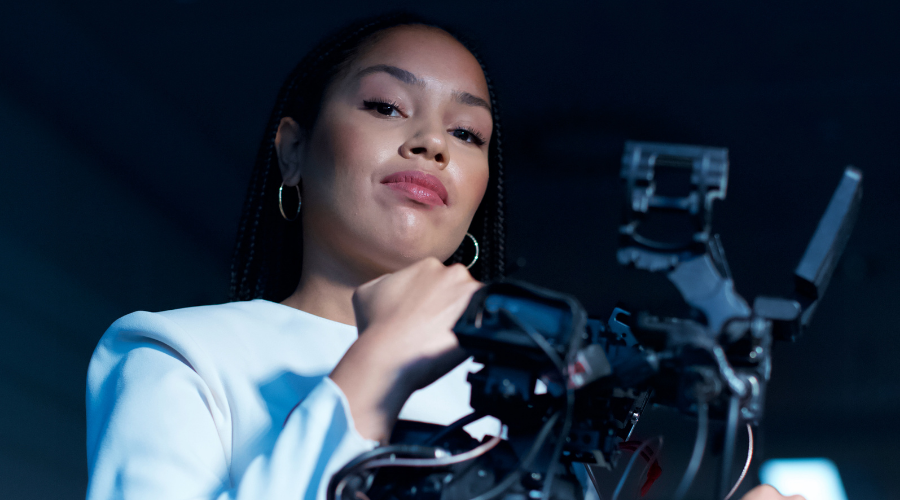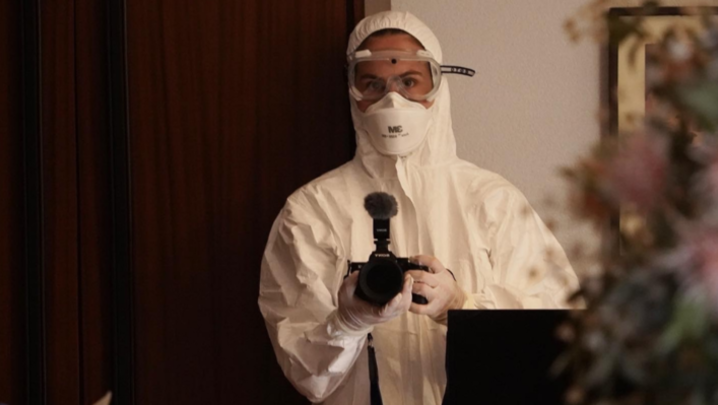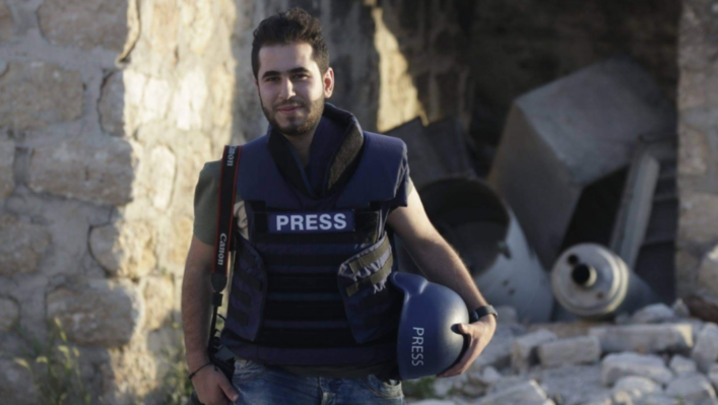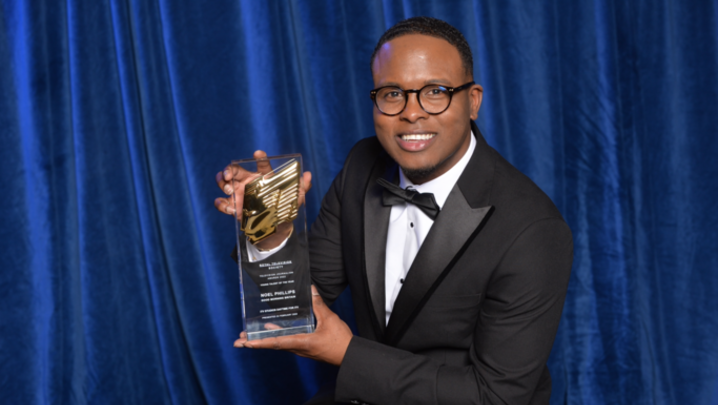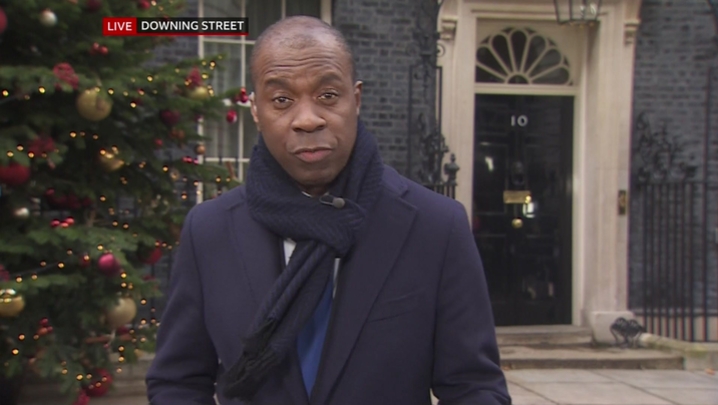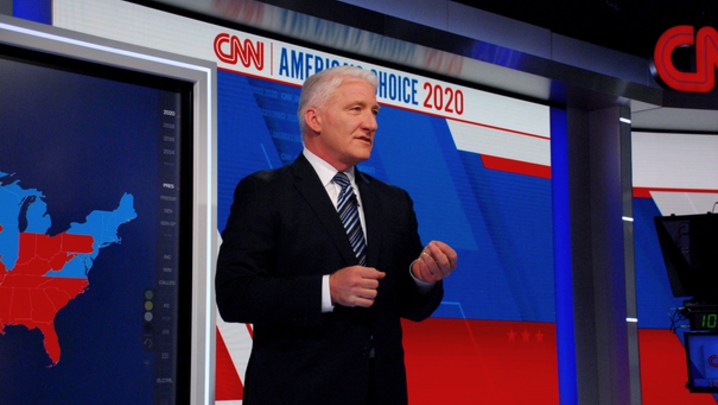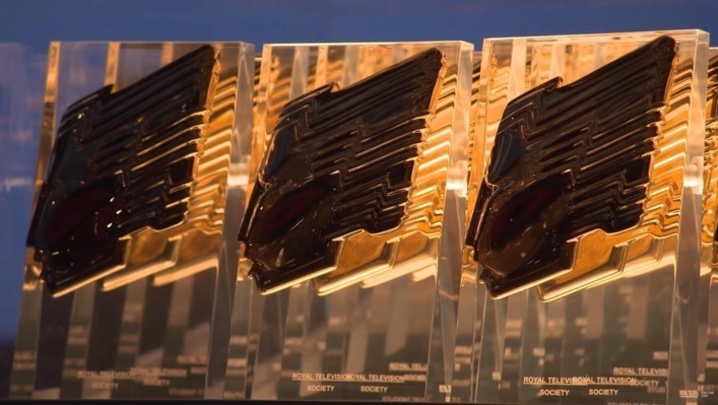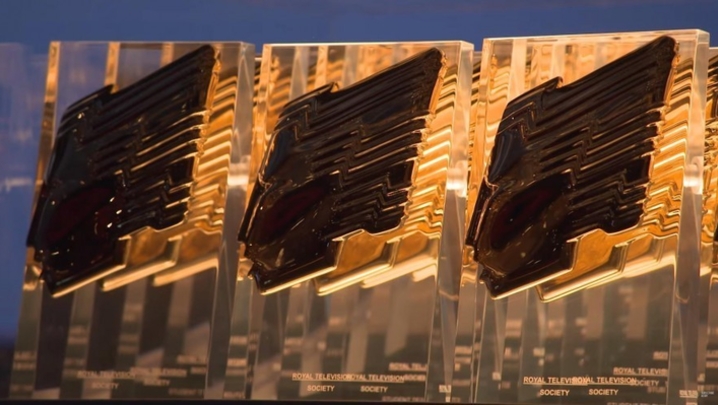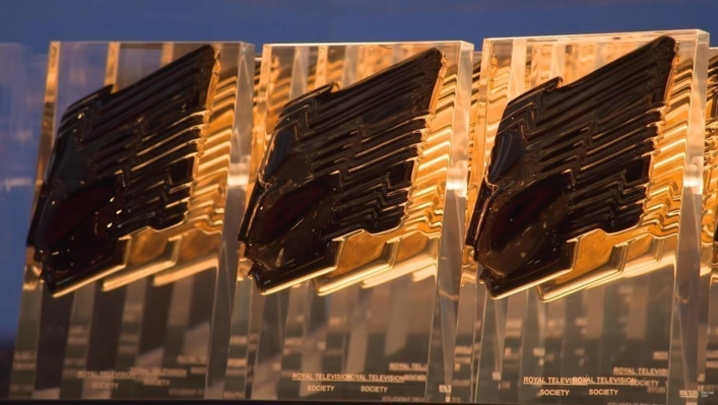BBC News correspondent Rianna Croxford talks about breaking into the journalism industry, finding original news stories and being nominated for a Young Talent of the Year Award at the RTS Television Journalism Awards.
BBC News correspondent Rianna Croxford currently specialises in investigations, having previously acted as the BBC’s community affairs correspondent.
Croxford regularly reports on domestic and international TV, radio and digital platforms and has covered the George Floyd protests, allegations of Priti Patel bullying members of the civil service and the impact of coronavirus on ethnic minorities and vulnerable communities.
How did you get started in journalism?
I was always interested in journalism. I started a school paper, I did an agony aunt column, I did a politics newsletter. I felt I could contribute and give back to the community, and really focus on issues that could be in the public interest. We know that journalism is still incredibly un-diverse, and I really did want to champion communities and voices that aren't necessarily always represented.
It’s so hard to break into the industry especially if you’re from a non-traditional background. I didn't know anyone who had ever been in journalism, I didn't have financial support, so in some ways it felt like a bit of a gamble, but I'm glad looking back it's one that I took.
There is still a lack of diversity in journalism, did you ever question if you’d be able to make it?
Definitely, I was self-sufficient and didn't necessarily have family to fall back on. There weren't lots of role models in the types of journalism I wanted to get into, which was investigative and hard news. There were times I thought, should I even risk going into journalism?
I did find myself applying for lots of different things after university, and the first job rejection I actually cried about was a journalism internship, because I had had rejection after rejection at that point. After a while, however, I received the journalism diversity fund, did an NCTJ course, and then did an internship at the Financial Times. It did feel after that things were falling into place to some degree, but you do have those moments of self-doubt, constantly.
How did you go from an internship at the Financial Times to working at the BBC?
I'd always wanted to work at the BBC, I loved everything the BBC stood for in terms of impartiality. The Financial Times sponsored the journalism diversity fund and I reached out to them and secured an internship as a trial scheme. I then applied for a radio traineeship at the BBC through Creative Access.
I got a lucky break around December 2018, when I invited myself along to an editorial meeting and pitched a story I had been working on for about nine months, looking at ethnic pay gaps at universities, and that got commissioned.
I kept bringing in and pitching stories and working really hard to build the trust of my editors. I started working as the community affairs correspondent during Covid-19 and I have now moved into the investigations team.
You reported on the use of NDAs by universities to silence students, were you surprised at how widespread the practice was?
Completely. The previous year, I looked into the misuse of non-disclosure agreements on staff and more than £90 million had been paid out in two years. Off the back of that, a student approached me and said they had signed one, so I asked lots of different bodies and lawyers and they were all surprised to hear it as well. Through word of mouth, I gathered data about what was really happening and there were some legitimate uses of NDAs. But, you [also] had people who had brought complaints of rape, sexual misconduct, bullying and even poor teaching, being told to sign NDAs.
One student said that she had been told she would get expelled if she spoke out about what was happening and that was a lot of pressure to put on a student without any legal advice. We did a 30-minute investigative podcast, alongside a TV, radio and online rollout, and it had a really big impact.
How do you find stories about people who are often underrepresented in the media?
It’s about making connections, introducing yourself to community groups and striking up random conversations. It’s simply talking to people, finding online communities and seeing what's being discussed. I think the vast majority of stories come from word of mouth and actually wondering is there a bigger problem than this, and asking questions off the back of that. Stories are about people, come from people and start with people. I think all the stories that I had ever done have always started with speaking to someone and then asking the questions.
What piece of work are you most proud of?
I’m glad I can look back and say I've done stories on politics, education, health, but I think I'm most proud of the work I did around how Covid-19 is impacting people from ethnic minority communities, being able to really push that conversation quite early on and bring it into the public domain and see the tangible effects of that.
I'm also really proud of the work that I did about Belly Mujinga, I worked with her family for quite some months. Seeing the impact of her death opened up wider questions about the treatment of transport workers and again the impact of Covid-19 on people from ethnic minority backgrounds and questions of institutional racism. Two million people signed a petition for justice for Belly Mujinga and nearly three million people tuned in to watch the Panorama report.
What advice would you give to someone who is at the start of their journalism career?
Build a support network around you, whether that's other colleagues, peers, reach out and email people whose work you admire asking for advice. Think about what makes you unique, if you can draw on your background, either in terms of communities or audiences you can reach, sometimes people are inspired by their own personal circumstances.
Be curious and engaged, constantly ask questions about what you read and who you speak to, think about where you might draw your stories from. Focus on being multiskilled, whether it's watching online tutorials, trying to film on your mobile phone, or reading up about things, so much of it is about personal self-development. Constantly look for stories and pitch well-formed ideas to local papers. Know what makes you different and how your perspective can really add to a newsroom or to a team.
Congratulations on your nomination. How do you feel about being nominated for Young Talent of the Year?
It feels really surreal, and in some ways I never really imagined that someone from my background, being the first in my family to go to university, would even be working in journalism, working at the BBC, or be nominated for an award. I’m over the moon. Something I had to tell myself a lot initially, that I don't do as much now, is to believe that your contributions, your perspective, your ideas matter, and are of value and don’t be afraid to share them.
Rianna Croxford was nominated for Young Talent of the Year at the RTS Television Journalism Awards 2021. Croxford was nominated alongside Fadi Al Halabi and Renata Brito.

